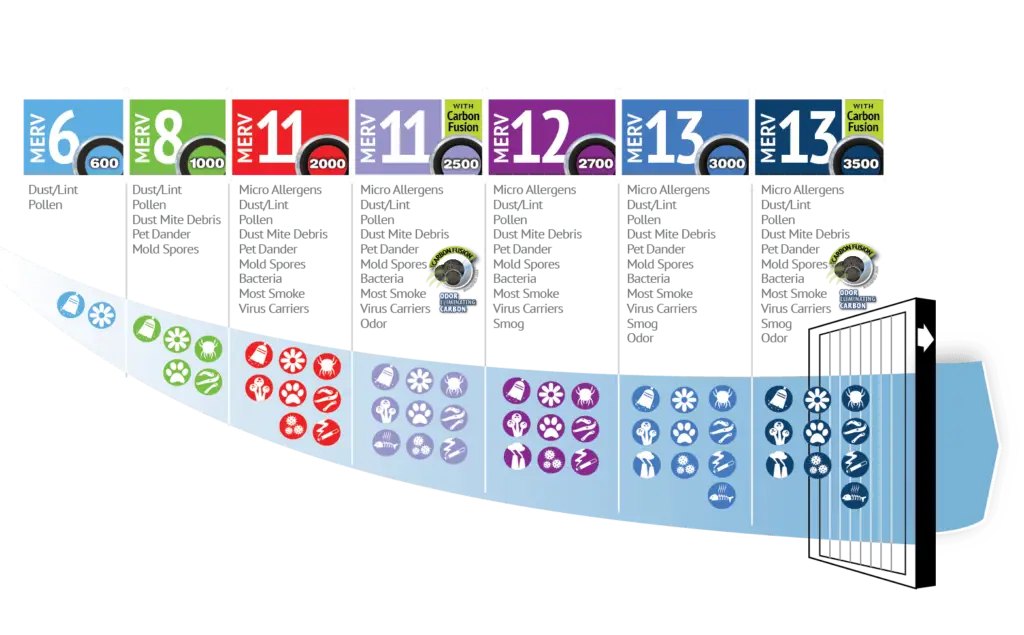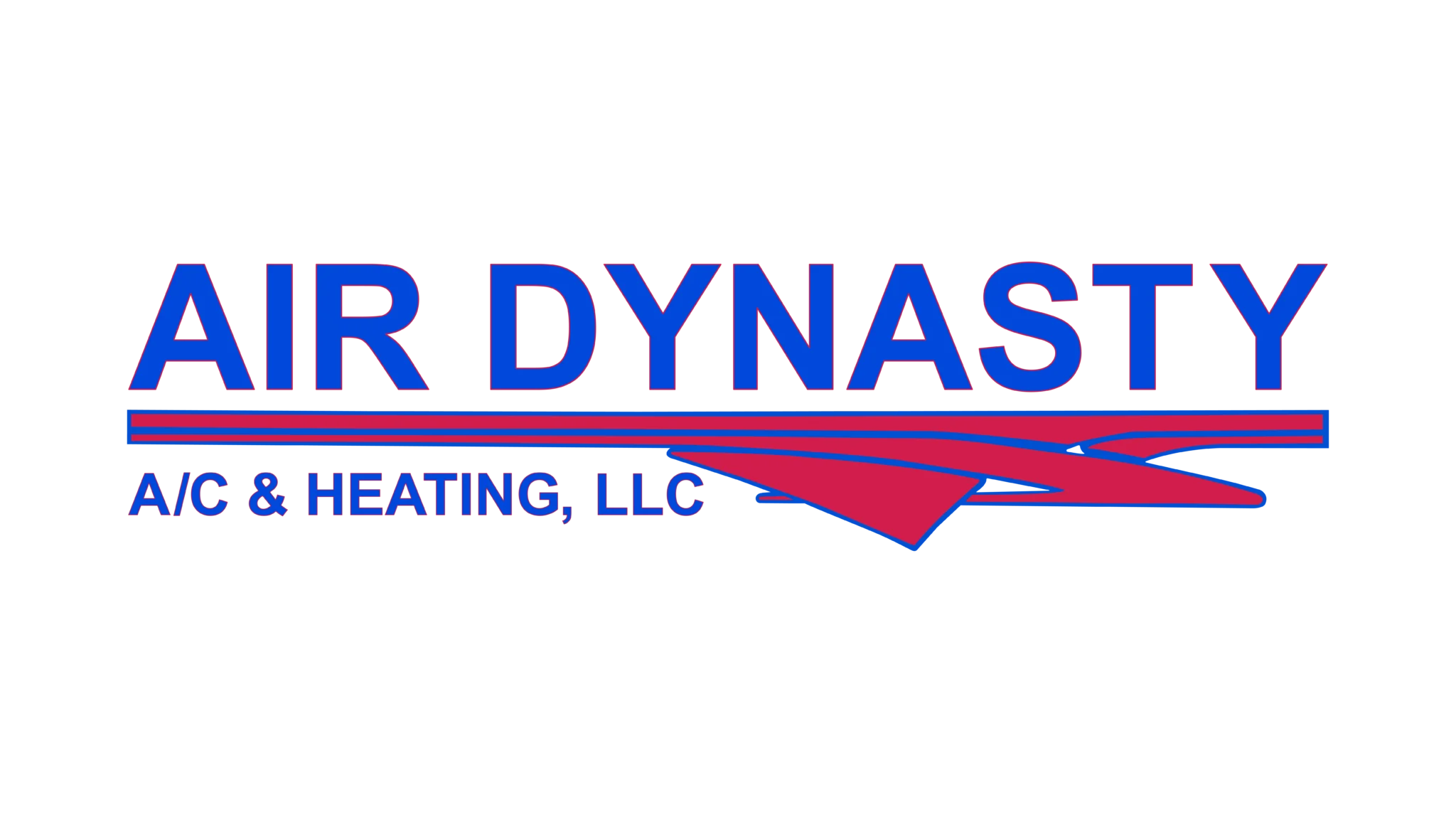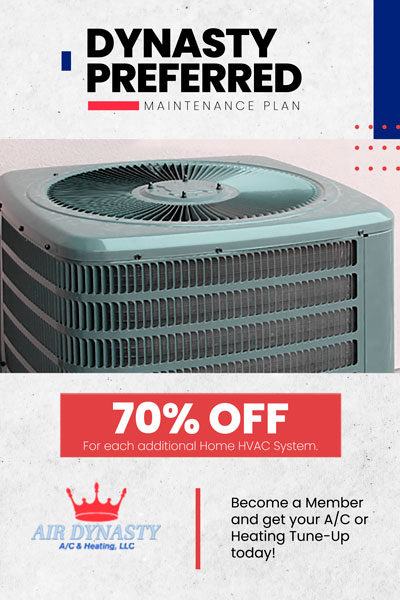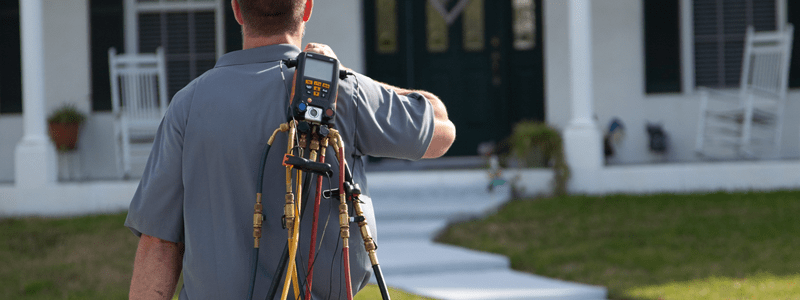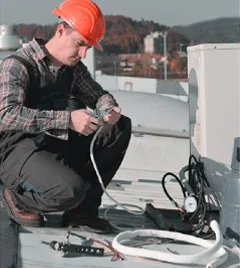HVAC Media Filter Replacements
Are you looking to improve the air quality in your home and increase the efficiency of your AC system? HVAC media filters play a crucial role in achieving these goals. In this article, we will explore why it is important to replace media filters in an AC system, how often they should be replaced, and the signs that indicate it’s time for a replacement. We will also discuss the different types of media filters available and provide tips on choosing the right one for your AC system. Join us as we dive into the world of HVAC media filter replacements and learn how to keep your home’s air clean and your AC system running smoothly.
Key Takeaways:
- Regularly replacing HVAC media filters improves air quality, energy efficiency, and extends the lifespan of your AC system.
- The frequency of media filter replacements depends on factors like filter type and air quality, but a general guideline is every 1-3 months.
- Signs that media filters need to be replaced include reduced airflow, visible dirt and debris, and strange odors. Follow proper steps to replace filters for optimal performance.
What are HVAC Media Filters?
HVAC Media Filters, also known as air filters or media air cleaners, are essential components of heating, ventilation, and air conditioning (HVAC) systems. These filters play a crucial role in ensuring that the air circulated by HVAC systems is clean and free from contaminants. By trapping dust, debris, pollen, and other particles, HVAC media filters help improve indoor air quality, creating a healthier and more comfortable environment for building occupants. Regular maintenance of these filters is paramount to their effectiveness; clogged or dirty filters can hinder airflow and strain the HVAC system, leading to higher energy consumption and potential damage. It is recommended to replace filters as per manufacturer guidelines or more frequently in high-traffic areas or during peak usage seasons.
Why is it Important to do media filter replacements in an AC System?
Replacing media filters in an AC system is crucial for maintaining optimal indoor air quality, enhancing energy efficiency, and prolonging the lifespan of HVAC equipment. By regularly replacing these filters, you ensure that dust, pollen, and other airborne particles are effectively captured, preventing them from circulating in your home. This not only creates a healthier indoor environment but also reduces the risk of respiratory issues and allergies. Clean filters allow the system to operate more efficiently, leading to lower energy consumption and decreased utility bills. Over time, this simple maintenance task can contribute to significant cost savings and prevent costly repairs or replacements of HVAC components.
Improved Air Quality
Regularly replacing media filters in an AC system leads to improved air quality by effectively capturing particles like dust, pollen, and allergens, reducing indoor air pollution. When considering the efficiency of air filters, one crucial factor to focus on is the MERV rating. The Minimum Efficiency Reporting Value indicates how well a filter can capture particles of different sizes. By selecting a filter with an appropriate MERV rating for your specific needs, you can significantly alleviate allergies and enhance your overall well-being. Airborne particles that trigger allergic reactions are efficiently trapped, ensuring cleaner and healthier indoor air. This shift not only improves air quality but also creates a more comfortable and safe environment for residents.
Increased Energy Efficiency
By replacing media filters in an AC system, homeowners can significantly boost energy efficiency, leading to lower utility bills and reduced strain on HVAC equipment. Dirty or clogged filters restrict airflow, making the HVAC system work harder to maintain the desired temperature. This extra strain not only consumes more energy but also puts undue stress on the system, potentially shortening its lifespan. With clean and efficient filters, the system operates smoothly, improving overall performance and reducing the need for frequent repairs.
Extended Lifespan of AC System
Regular replacement of media filters in an AC system can extend the lifespan of HVAC equipment by preventing dirt buildup, reducing strain on components, and ensuring optimal performance. When filters are not regularly replaced, they can get clogged with dust, pollen, and other particles, leading to restricted airflow and overworking the HVAC system. This extra strain can cause parts to wear out faster, potentially resulting in costly breakdowns and repairs. By implementing a routine filter replacement schedule, homeowners can maintain the efficiency of their AC units, improve indoor air quality, and avoid sudden malfunctions. It’s a simple and cost-effective maintenance task that can make a significant difference in the longevity of the HVAC system.
How Often Should Media Filters be Replaced?
Determining how often media filters should be replaced in your HVAC system depends on various factors such as filter type, indoor air quality, and system usage. In terms of media air cleaner maintenance, experts recommend checking the filters monthly, especially in high-traffic areas or during heavy HVAC usage seasons. For standard residential HVAC systems, it’s generally advised to change the filter every 90 days. In households with pets or specific air quality concerns, like allergies or respiratory issues, more frequent replacements, such as every 60 days, might be necessary to ensure optimal filtration and system efficiency.
Factors to Consider
When deciding how often to replace media filters, homeowners should consider factors like filter efficiency, indoor air quality, HVAC system usage, and manufacturer recommendations. Filter efficiency plays a crucial role in ensuring clean indoor air and maintaining the optimal functioning of the HVAC system. Homeowners should assess the MERV rating of the filters and how effectively they capture particles. The frequency of filter replacement can depend on the usage patterns of the HVAC system. Systems that run continuously may require more frequent changes compared to those used sporadically. It is recommended to refer to the manufacturer’s guidelines for the specific filters being used. These guidelines often provide insights into the ideal replacement schedule based on the type of filter and the typical conditions in the household. Following these recommendations can help homeowners optimize their indoor air quality and prolong the lifespan of their HVAC system.
General Guidelines for Media Filter replacements
In general, media filters should be replaced every 3 to 6 months to maintain optimal indoor air quality, especially in households with high levels of particles, dust, or allergens. Regular replacement of filters is essential in preventing the buildup of harmful particles that can affect respiratory health and overall well-being. Over time, filters become clogged with dust and debris, reducing their effectiveness in capturing pollutants. By adhering to the recommended replacement cycles, you ensure that your indoor environment remains free from contaminants, improving air circulation and minimizing the risk of allergen-related issues.
What are the Signs that Media Filters Need to be Replaced?
Several indicators suggest that media filters in an AC system need replacement, including reduced airflow, visible dirt and debris, and the presence of strange odors in the air. Reduced airflow could indicate that the filter is clogged, hindering the proper circulation of air in the HVAC system. This can lead to inefficient cooling or heating, affecting the overall performance. Visible dirt and debris on the filter are a clear sign that it has reached its maximum capacity and is no longer effectively capturing particles. The accumulation of contaminants not only compromises air quality but also poses a risk to the unit’s components.
Reduced Airflow
One clear sign that media filters require replacement is a noticeable decrease in airflow through the HVAC system, indicating potential filter clogging or blockage. Reduced airflow in the AC system can lead to inefficiencies that affect overall performance and indoor air quality. When filters become clogged, they are unable to effectively capture dust, debris, and allergens, compromising the filtration process. As a result, the system must work harder to maintain desired temperature levels, leading to increased energy consumption and strain on vital components.
Visible Dirt and Debris
The presence of visible dirt, debris, or particles around the air filter area signals the need for replacement to prevent recirculation of contaminants in the indoor air. Regularly changing filters in your HVAC system is crucial for maintaining good indoor air quality. When these filters get clogged with particles, such as pollen and dust, they become less effective at trapping contaminants, leading to potential health risks. Noticing dirt or debris near the filter area serves as an alert to check the condition of your filters promptly. Ignoring this can result in poor air quality and could exacerbate allergies or respiratory issues. By being proactive about filter maintenance, you ensure that your living space remains a healthy environment free of pollutants.
Strange Odors
Unusual odors emanating from the AC system can indicate a need for media filter replacement, as accumulated dirt and contaminants can lead to foul smells circulating in the indoor air. Timely replacement of dirty HVAC filters is crucial not only for eliminating unpleasant odors but also for maintaining optimal indoor air quality. Clogged filters can compromise the system’s efficiency, leading to poor airflow and potential mold growth. Regularly changing filters not only helps in preventing health issues caused by poor air quality but also contributes to the longevity of the HVAC system. It’s recommended to follow the manufacturer’s guidelines for filter replacement intervals and invest in high-quality filters for better performance.
How to Replace Media Filters in an AC System?
Replacing media filters in an AC system is a straightforward process that involves turning off the power, locating and removing the old filter, installing the new filter correctly, and testing the system for functionality. Ensure to shut off the power supply to the HVAC system to prevent any mishaps during the replacement process. Once the power is off, locate the filter compartment, which is typically found near the return air duct. Carefully remove the old filter, making sure to note the direction of airflow indicated on the filter frame. Next, take the new filter and insert it into the slot, ensuring it is positioned in the correct orientation. Secure the filter in place according to the manufacturer's instructions, ensuring a tight fit to prevent air leakage. After the new filter is securely in place, restore power to the system. Test the HVAC system to ensure that the new filter is functioning as expected. Check for proper airflow and listen for any unusual noises that may indicate an installation issue. By following these steps, you can effectively replace the media filters in your AC system and maintain optimal air quality.</p>
Turn off Power to AC System
Before starting the replacement process, ensure the safety of the procedure by turning off the power to the AC system to prevent any electrical accidents or issues during filter installation. It is crucial to begin by locating the main power switch or circuit breaker that controls the HVAC system in your home. Turning off this power source will minimize the risk of electrical shock and injury. Make sure to double-check that the power is completely off before proceeding with the filter replacement. Remember, safety should always be the top priority when working with any components of your HVAC system, especially when dealing with filters that require precise handling and installation.
Locate and Remove Old Filter
After powering off the system, locate the existing filter within the AC setup and carefully remove it, paying attention to the filter’s orientation and any debris accumulation. Proper maintenance of filters is crucial for the efficient functioning of your AC system. Once the filter is removed, inspect it for any signs of damage or clogging. Regular replacement of filters is recommended to ensure optimal air quality and system performance. Remember to dispose of the old filter responsibly and install a new one correctly, following the manufacturer’s instructions. Keeping your filters clean and replacing them as needed will extend the lifespan of your AC unit and improve its efficiency.
Install New Filter
Once the old filter is removed, install the new media filter in the correct position and orientation, ensuring a snug fit and secure placement to prevent air leakages. When inserting the new media filter, gently slide it into the designated slot, ensuring that the arrows or indicators on the filter line up with the corresponding markings within the AC system. Proper alignment is crucial for the efficient operation of the filtration system. Press down firmly on the edges of the filter to ensure a tight seal and prevent any gaps that could allow unfiltered air to pass through. Lifting the filter slightly, check around the edges to make sure it is properly seated before closing the filter compartment.
Turn on Power and Test System
After replacing the filter, restore power to the AC system and conduct a thorough test to ensure proper functionality, adequate airflow, and filter integrity for efficient air filtration. Testing the system post-replacement is crucial to validate the performance of the new filter and safeguard the overall efficiency of your HVAC system. By running a comprehensive test, you can detect any potential issues early on, such as improper airflow or compromised filter quality, which may impact the system’s performance. Testing allows you to verify that the air filtration is working optimally, ensuring that your indoor air quality remains at its best. It's essential to monitor the system closely post-filter replacement to guarantee that all components are functioning as intended, providing you with a comfortable and healthy environment.
What are the Different Types of Media Filters?
Media filters for AC systems come in various types, including fiberglass filters, polyester filters, pleated filters, and high-efficiency filters, each offering distinctive features and filtration capabilities. Starting with fiberglass filters, these are cost-effective options that are excellent at capturing larger particles like dust and debris. On the other hand, polyester filters are washable and reusable, making them environmentally friendly choices. Pleated filters provide a higher surface area for filtration, trapping more particles and improving air quality. High-efficiency filters, also known as HEPA filters, are top-of-the-line options that can capture up to 99.97% of particles as small as 0.3 microns, making them ideal for those with allergies or asthma.
Fiberglass Filters
Fiberglass filters are cost-effective options for basic filtration needs in AC systems, providing standard efficiency levels and suitable performance for capturing larger particles and debris. One of the key advantages of utilizing fiberglass filters in your HVAC system is their affordability without compromising quality. These filters are known for their pocket-friendly prices, making them an attractive choice for homeowners and businesses looking to maintain a clean and healthy indoor environment. Along with their budget-friendly nature, fiberglass filters also offer remarkable efficiency when it comes to trapping dust, dirt, pollen, and other airborne contaminants, allowing for improved air quality and better system performance.
Polyester Filters
Polyester filters offer enhanced filtration capacity compared to fiberglass options, effectively capturing smaller particles like pollen, dust, and allergens while maintaining good airflow in the system. This superior filtration performance of polyester filters makes them ideal for HVAC systems, ensuring cleaner indoor air quality. The particle retention capabilities of these filters play a crucial role in trapping harmful particles, preventing them from circulating through the ductwork and entering living spaces. Polyester filters provide a good balance of airflow, allowing for optimal air circulation while still effectively capturing particles. This balance is essential for maintaining the efficiency and longevity of HVAC systems, ultimately leading to better performance and energy savings over time.
Pleated Filters
Pleated filters offer increased surface area for filtration, allowing them to capture more particles and contaminants effectively, making them ideal for households with high indoor air quality standards. One of the key benefits of these filters is their enhanced capacity to trap dust, pollen, mold spores, and other airborne particles that can aggravate allergies and respiratory issues. The pleated design not only improves filtration but also extends the longevity of the filter, reducing the need for frequent replacements. By providing better filtration, pleated filters contribute to a cleaner and healthier indoor environment. This is particularly beneficial for those with respiratory conditions or sensitivities to airborne particles. The improved air quality resulting from using pleated filters in HVAC systems can lead to increased comfort and overall well-being for occupants.
High-Efficiency Filters
High-efficiency filters are advanced options that provide superior filtration performance by capturing microscopic particles, allergens, and bacteria, ensuring exceptional indoor air quality standards. These filters have a dense design that effectively traps pollutants, dust, and other harmful particles, preventing them from circulating in the air you breathe. The filtration efficiency of these advanced filters significantly reduces the risk of respiratory illnesses and allergies, creating a healthier environment for occupants. The enhanced filtration capabilities of these filters contribute to the longevity and efficiency of your HVAC system, reducing the frequency of maintenance and extending the lifespan of your equipment.
How to Choose the Right Media Filter for Your AC System?
Selecting the appropriate media filter for your AC system involves considering factors such as airflow requirements, MERV ratings, Energy Star certification, and consulting with HVAC professionals for tailored recommendations. In terms of airflow requirements, it’s crucial to look for a filter that allows optimal air circulation without causing strain on your system. MERV ratings play a significant role in determining the filter’s efficiency in trapping various particles, so choosing the right MERV level according to your needs is essential. Additionally, Energy Star certification ensures that the filter meets specific energy efficiency standards, helping you save on utility costs in the long run. Seeking advice from knowledgeable HVAC experts can provide valuable insights tailored to your specific system and environment.
Consider Airflow Needs
When selecting a media filter, prioritize airflow requirements to ensure optimal HVAC system performance, balancing filtration efficiency with sufficient air circulation throughout the system. Choosing the right filter for your HVAC system involves more than just focusing on filtration capabilities. Airflow plays a crucial role in the overall efficiency and effectiveness of the system. A filter that restricts too much airflow can lead to reduced performance and potentially increase energy consumption. On the other hand, a filter that allows for proper airflow can enhance the system’s efficiency and ensure consistent air quality. By considering the airflow needs alongside filtration efficiency, you can achieve an optimal balance that maximizes performance while maintaining energy efficiency and indoor air quality.
Check MERV Rating
Verify the Minimum Efficiency Reporting Value (MERV) rating of media filters to gauge their filtration efficiency and capacity to capture airborne particles based on a standardized measurement scale. MERV ratings play a crucial role in determining how well a filter can clean the air circulating through HVAC systems. A higher MERV rating signifies a greater filtration efficiency, trapping smaller particles and contaminants. Filters with a higher MERV rating are particularly effective in capturing allergens, dust, mold spores, and other pollutants, thus improving indoor air quality significantly. By understanding MERV ratings, individuals can make informed decisions when selecting filters for their HVAC systems, ensuring optimal filtration performance and cleaner indoor environments. It is recommended to match the MERV rating of the filter with the specific filtration requirements of the space to achieve maximum efficiency and particle retention.
Look for Energy Star Certification
Opt for media filters with Energy Star certification to ensure energy-efficient operation, reduced environmental impact, and long-term cost savings while maintaining high indoor air quality standards. Energy Star-certified filters for AC systems offer numerous benefits beyond just energy efficiency. These filters are designed to enhance the performance of HVAC systems, ensuring they operate at their optimal levels, which not only saves on energy costs but also extends the lifespan of the equipment. By using Energy Star-certified filters, you are not only benefiting the environment through reduced energy consumption but also reducing your carbon footprint. These filters are highly efficient in capturing and removing particles, allergens, and pollutants from the air, thus improving the overall indoor air quality and promoting a healthier living environment for you and your family.
Consult HVAC Professional
Seek advice from HVAC professionals when selecting media filters for your AC system to receive tailored recommendations, expert guidance, and ensure compatibility with your HVAC equipment. Media filters play a crucial role in maintaining the performance and longevity of your HVAC system. Proper selection and installation of these filters can enhance indoor air quality and efficiency. By consulting with HVAC experts, you can gain valuable insights into the various types of filters available, such as fiberglass, pleated, or HEPA, and determine which best suits your specific needs. Professionals can also advise on factors like MERV ratings, filter sizes, and maintenance schedules to optimize the filtration process and prolong the life of your HVAC equipment. Book today!
Frequently Asked Questions
1. What are HVAC media filter replacements?
HVAC media filter replacements are air filters designed to be used in heating, ventilation, and air conditioning (HVAC) systems. They are responsible for filtering out dust, pollen, and other particles from the air, providing cleaner and healthier air for your home or building.
2. Why is it important to replace HVAC media filters?
Regularly replacing HVAC media filters is crucial for maintaining a clean and efficient air conditioning system. As the filters become clogged with dirt and debris, they can restrict airflow and cause strain on the system, leading to poor performance and potentially costly repairs.
3. How often should HVAC media filters be replaced?
The frequency of HVAC media filter replacements varies depending on factors such as the type of filter used, the size of your home or building, and the level of pollutants in the air. Generally, it is recommended to replace filters every 3-6 months for optimal performance.
4. What are the benefits of replacing HVAC media filters?
Replacing HVAC media filters has numerous benefits, including improved air quality, increased energy efficiency, and prolonged lifespan of your air conditioning system. It can also help reduce allergies and respiratory problems by removing pollutants from the air.
5. Can I replace HVAC media filters myself?
While it is possible to replace HVAC media filters yourself, it is recommended to consult a professional for proper installation and to ensure you are using the correct filter for your specific system. A professional can also help determine the best schedule for filter replacements.
6. Are there different types of HVAC media filters available?
Yes, there are various types of HVAC media filters available, such as fiberglass, pleated, and HEPA filters. Each type offers different levels of filtration and efficiency. It is important to choose the right filter for your specific needs and to regularly replace them for optimal performance.
